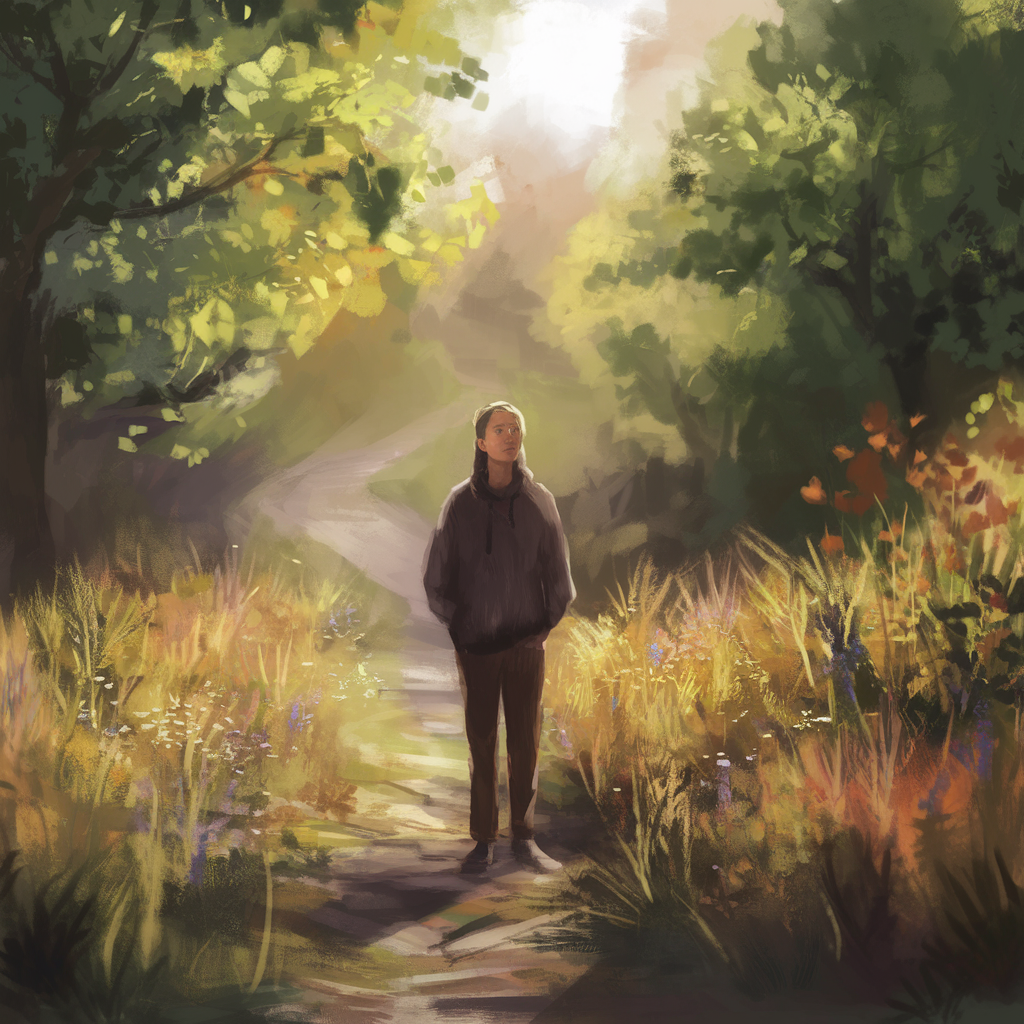Nature Walks: A Simple Way to Refresh Your Mind
Have you ever felt that gnawing sensation of a cluttered mind? You know the one—when thoughts seem to bounce around like ping-pong balls in a tin can? If so, you’re certainly not alone. In our fast-paced world, it’s all too easy to feel overwhelmed by daily stresses, responsibilities, and the relentless chatter of modern life. But what if I told you that the solution is as simple as stepping outside? Nature walks—those leisurely strolls through parks, forests, or along beaches—have long been touted as a remedy for mental fatigue. And for good reason.
Let’s dig deeper into why a walk in the great outdoors can be one of the most refreshing experiences for your mind. Spoiler alert: it’s not just about getting your steps in (though that’s a nice bonus). Nature walks can rejuvenate your spirit, boost creativity, and even improve your overall mental health. But how does this work? And what should you keep in mind to make the most of your nature excursions? Let’s explore.
The Science Behind Nature Walks
First, let’s talk brain chemistry. When you immerse yourself in nature, your brain responds in fascinating ways. Studies have indicated that exposure to natural environments can reduce levels of cortisol, the hormone associated with stress. A significant number of researchers have found that just a short period spent in green spaces can lead to measurable improvements in mood and cognitive function. For instance, a study published in the journal Environmental Science & Technology found that participants who took a 90-minute walk in a natural setting reported lower levels of rumination—those pesky, spiraling thoughts that can lead to anxiety and depression.
It struck me that this is more than just theoretical—I’ve experienced this phenomenon firsthand. I remember the time I took a walk through a nearby nature reserve after a particularly stressful week at work. I had an overwhelming sense of calm wash over me as I breathed in the fresh air and listened to the rustling leaves. It’s as if the trees were whispering, “Relax, you’re in good company.”
Finding Your Perfect Nature Spot
Choosing the right location for your nature walk is crucial. Not all environments have the same restorative effects. Some folks might prefer a tranquil forest, while others might find solace by the ocean. Here are some options to consider:
- Forests: The dense greenery and sounds of wildlife can create a peaceful atmosphere.
- Parks: Urban parks often provide a slice of nature amidst the hustle and bustle of city life.
- Beaches: The rhythmic sound of waves and the expansive horizon can be incredibly soothing.
- Mountains: Higher altitudes can offer breathtaking views and a refreshing change of perspective.
Though I have to admit, I have a soft spot for lakeside walks. There’s something about the gentle lapping of water against the shore that just screams tranquility. Find what resonates with you, and don’t hesitate to explore new places. After all, variety can be the spice of life!
Making the Most of Your Nature Walks
Once you’ve selected your ideal spot, it’s time to turn your attention to how you approach these walks. Here are several strategies to enhance your experience:
1. Leave Your Phone Behind
In an age where we’re glued to our devices, stepping away from screens can be a challenge. But trust me, leaving your phone behind (or at least putting it on silent) can do wonders. Imagine this: you’re walking in nature, and instead of scrolling through social media, you’re tuning into the symphony of birds chirping and leaves rustling. It’s a refreshing change, to say the least. You might even find yourself noticing details you’d typically overlook, like the intricate patterns in tree bark or the delicate dance of butterflies.
2. Engage Your Senses
Speaking of tuning in, don’t just walk—experience. Take a moment to pause and really engage your senses. What do you hear? Smell? See? I remember one particular walk where I was so captivated by the sweet scent of blooming wildflowers that I almost forgot my worries. Stop to feel the texture of the leaves, the coolness of the breeze, or the warmth of the sun on your skin. Engaging your senses can ground you in the moment and amplify the calming effects of your surroundings.
3. Practice Mindfulness
Have you ever tried to think of nothing at all? It’s surprisingly tough! But that’s where mindfulness comes into play. As you walk, focus your thoughts on the present moment. Acknowledge any distractions, then gently guide your mind back to your surroundings. If you’re feeling particularly adventurous, you might even try a walking meditation, where you concentrate on each step and breath. I once saw a woman practicing this in the park, and it inspired me to give it a go; I must admit, it was a rather enlightening experience.
4. Walk with a Friend
Sometimes the best mental refreshment comes from connection. Bring a friend along for your nature walk. Engaging in light conversation can lift your spirits and deepen your bond. Plus, you might find that sharing your thoughts and feelings can be incredibly cathartic. I’ve had some of my most enlightening discussions while meandering through trails with friends, where the surroundings seem to encourage openness and vulnerability.
5. Embrace the Elements
Weather plays a role in our outdoor experiences, but instead of letting it deter you, embrace it! A gentle rain can add a magical quality to your walk, while a sunny day can energize you. Of course, it’s important to dress appropriately (let’s not be foolish about it); after all, no one enjoys squelching around in soggy shoes. On one memorable rainy day, I slipped on my galoshes and went out for a walk—it turned into a delightful adventure watching raindrops splattering on the leaves and creating little ripples in puddles.
The Mental Health Benefits of Nature Walks
Now that we’ve covered how to enhance your nature walks, let’s delve into the mental health benefits—because who doesn’t love a good dose of feel-good facts? Numerous studies have demonstrated that spending time in nature can improve mood and reduce feelings of anxiety and depression. In fact, some researchers suggest that regular nature walks might even reduce the risk of developing mental health disorders over time. Isn’t that something? It’s like nature is handing you a wellness prescription, free of charge!
In a world where stress seems to be a constant companion, carving out time for nature walks can be a proactive way to manage mental health. As someone who has battled anxiety, I can attest to the power of a simple walk outdoors. There’s something about the open sky and the vastness of nature that makes my worries feel small. It’s a gentle reminder that life is bigger than my daily concerns.
Real-Life Examples
Real-world experiences can illuminate these benefits even further. Take the story of a colleague of mine who found solace in nature after a particularly tough period in her life. She started taking daily walks in a nearby botanical garden. Over time, she noticed a remarkable shift in her mindset and overall well-being. “It was like therapy without the price tag,” she once told me, her eyes sparkling with enthusiasm. “I felt lighter, more connected to myself and the world around me.”
Another fascinating case comes from a study conducted by the University of Exeter, which found that those who lived closer to green spaces reported higher levels of well-being. The researchers concluded that access to natural environments could have a significant impact on mental health. It makes you wonder—what are we waiting for? Why not lace up those walking shoes and head outside?
Incorporating Nature Walks into Your Routine
You might be thinking, “This all sounds great, but how do I fit nature walks into my busy life?” Valid concern! However, with a little creativity and planning, it’s entirely doable. Here are some tips:
1. Schedule It In
Like any other important activity, treat your nature walks as an appointment. Mark it on your calendar and stick to it. Whether it’s a weekly ritual or a daily commitment, having it scheduled can help you prioritize your mental health.
2. Start Small
If you’re new to the idea of walking regularly, start small. Even a 10-15 minute stroll can have a positive impact. Gradually increase the duration and frequency as you become more comfortable. I remember when I first started walking regularly; I set a goal of just 10 minutes a day. Before long, I was up to 30 minutes, and my mood had dramatically improved!
3. Create a Walking Group
Get your friends or family involved! Organizing a walking group can make the experience more enjoyable and keep you motivated. Plus, it’s a great way to catch up with loved ones while enjoying the benefits of nature. Just be sure to choose a time that works for everyone—no one wants to be the only one lugging themselves out of bed for a 7 a.m. hike!
4. Explore New Areas
Don’t limit yourself to the same old routes. Mix it up by exploring new trails or parks in your area. I once stumbled upon a hidden gem of a nature reserve that had stunning views of a river and an abundance of wildlife. It felt like discovering a new world—and it truly reignited my passion for walking.
5. Be Patient
Finally, be patient with yourself. If you miss a few days or struggle to find motivation, that’s perfectly normal. Life happens! Just remind yourself that nature is always there, ready to welcome you back whenever you’re ready. Remember, it’s all about the journey, not just the destination.
Conclusion: A Breath of Fresh Air
In conclusion, nature walks offer a simple yet powerful way to refresh your mind and enhance your overall well-being. The combination of physical activity, mental engagement, and the beauty of the outdoors creates an ideal environment for mental health benefits. Whether you’re seeking solace, inspiration, or simply a break from the daily grind, don’t underestimate the power of stepping outside.
As you lace up your shoes and venture into the great outdoors, keep in mind that every step you take is a step toward a clearer mind and a lighter heart. So go ahead, explore your local parks, breathe in the fresh air, and let nature work its magic. Who knows? You might just stumble upon your new favorite escape.
And remember, the world is out there waiting for you—so why not take that first step?






